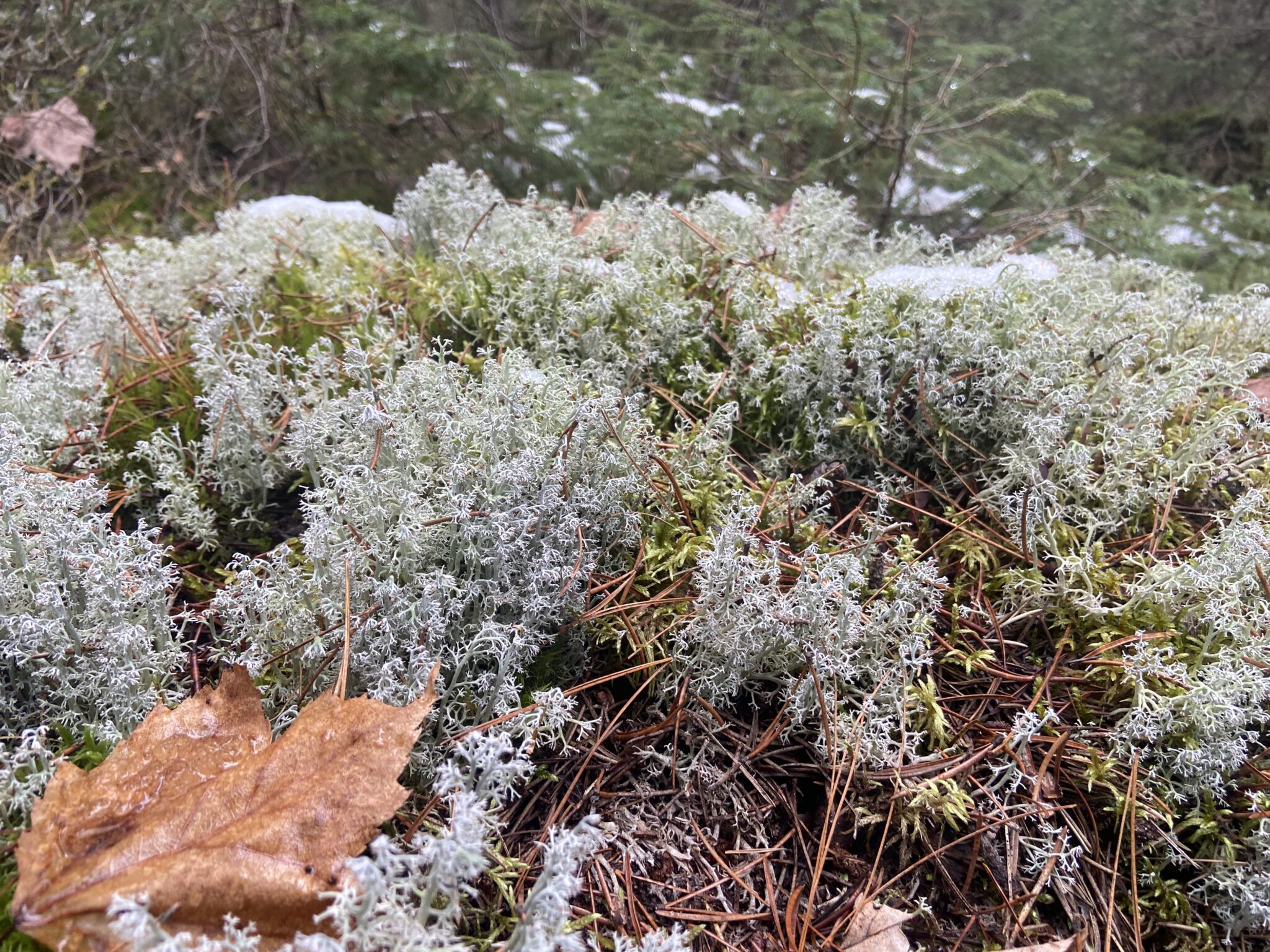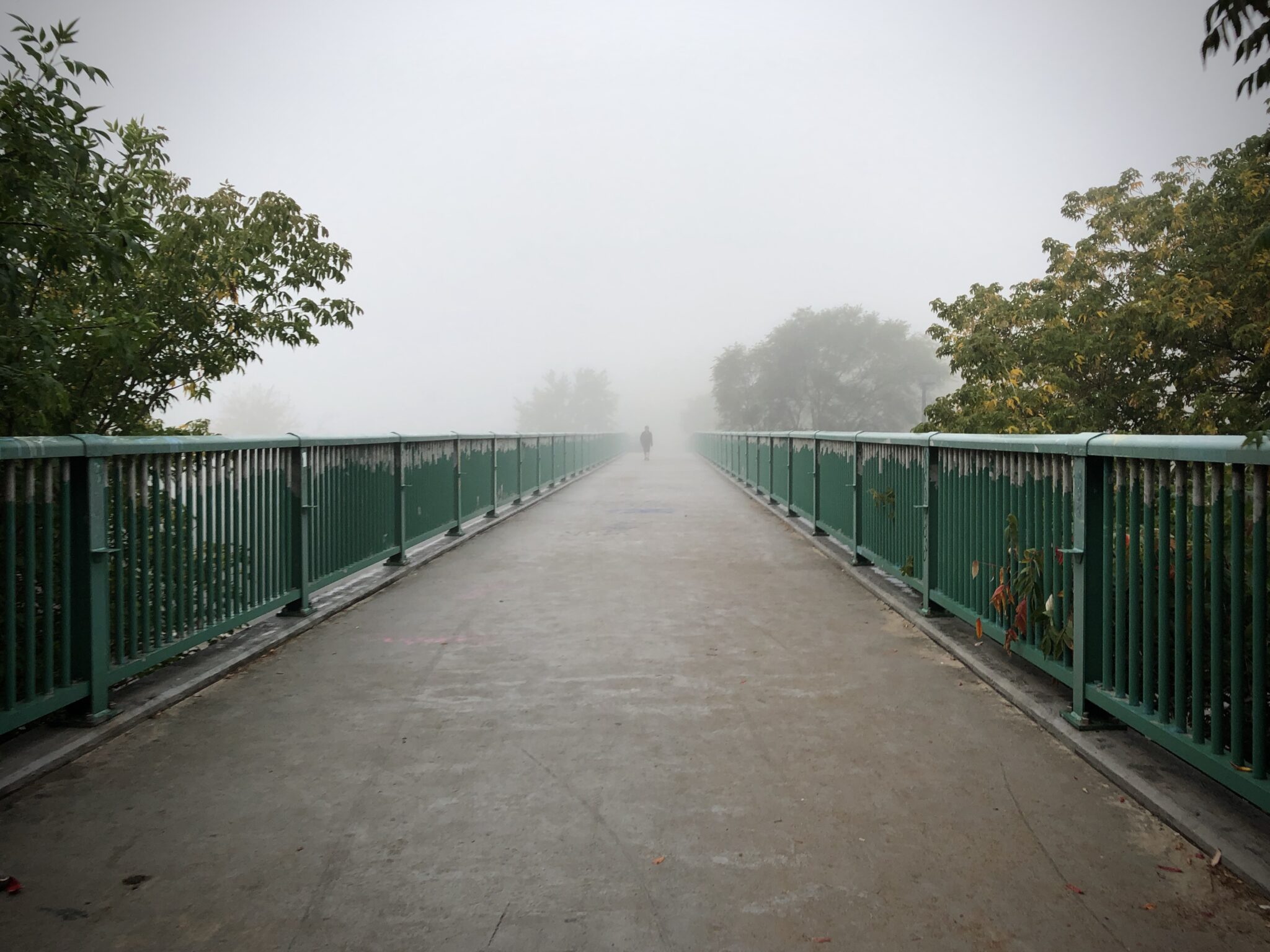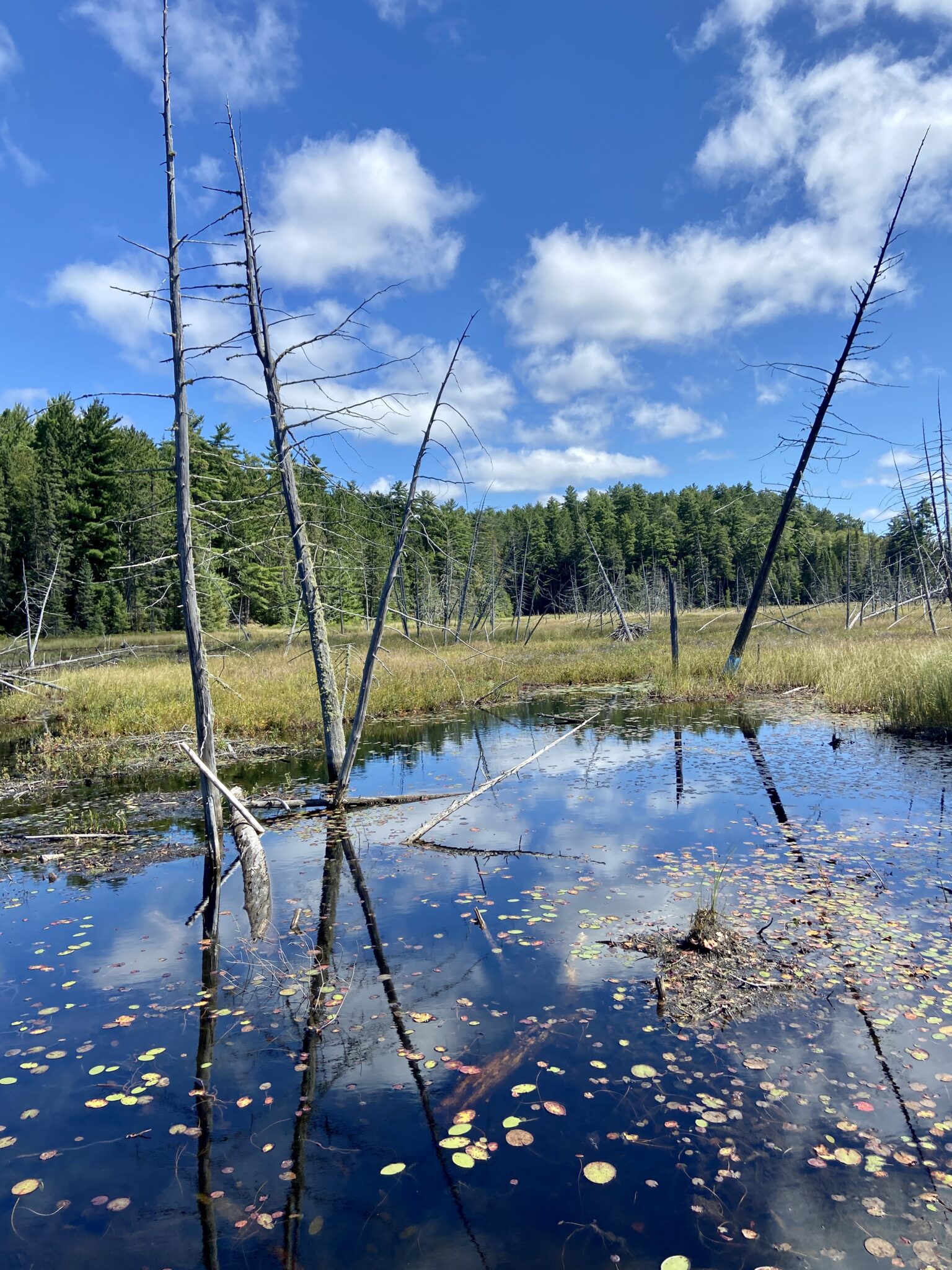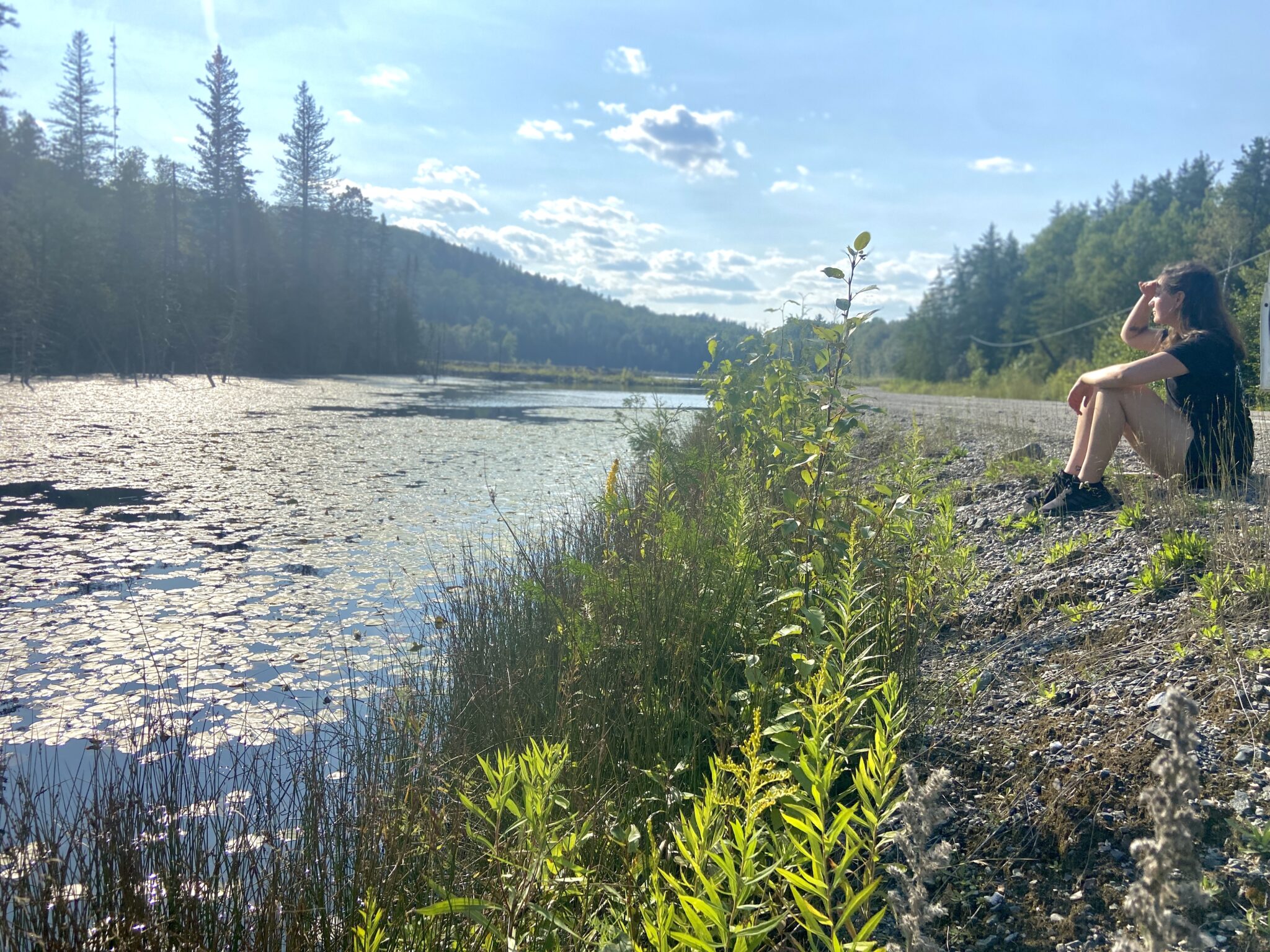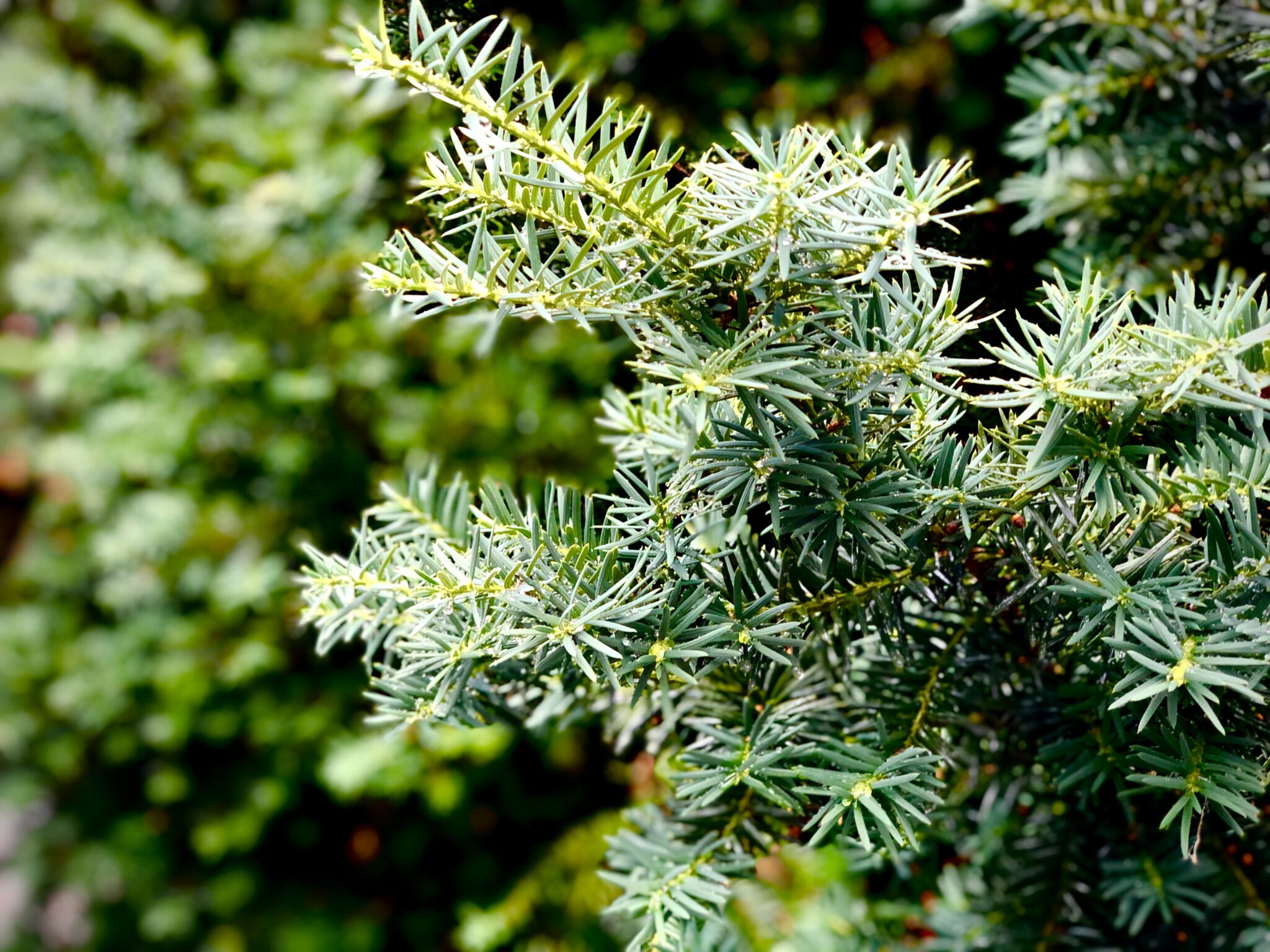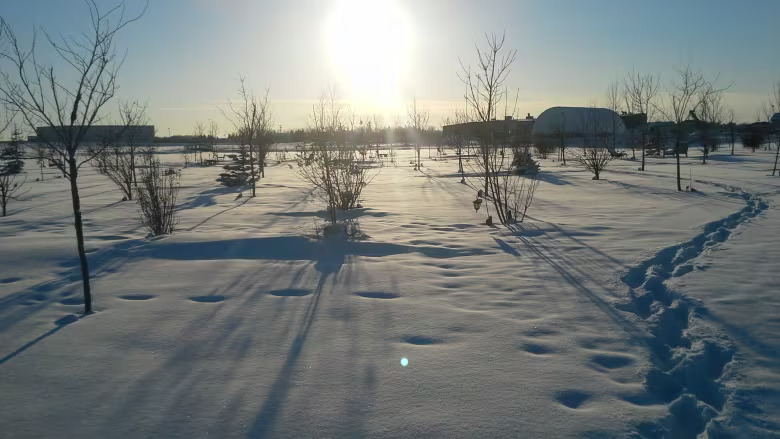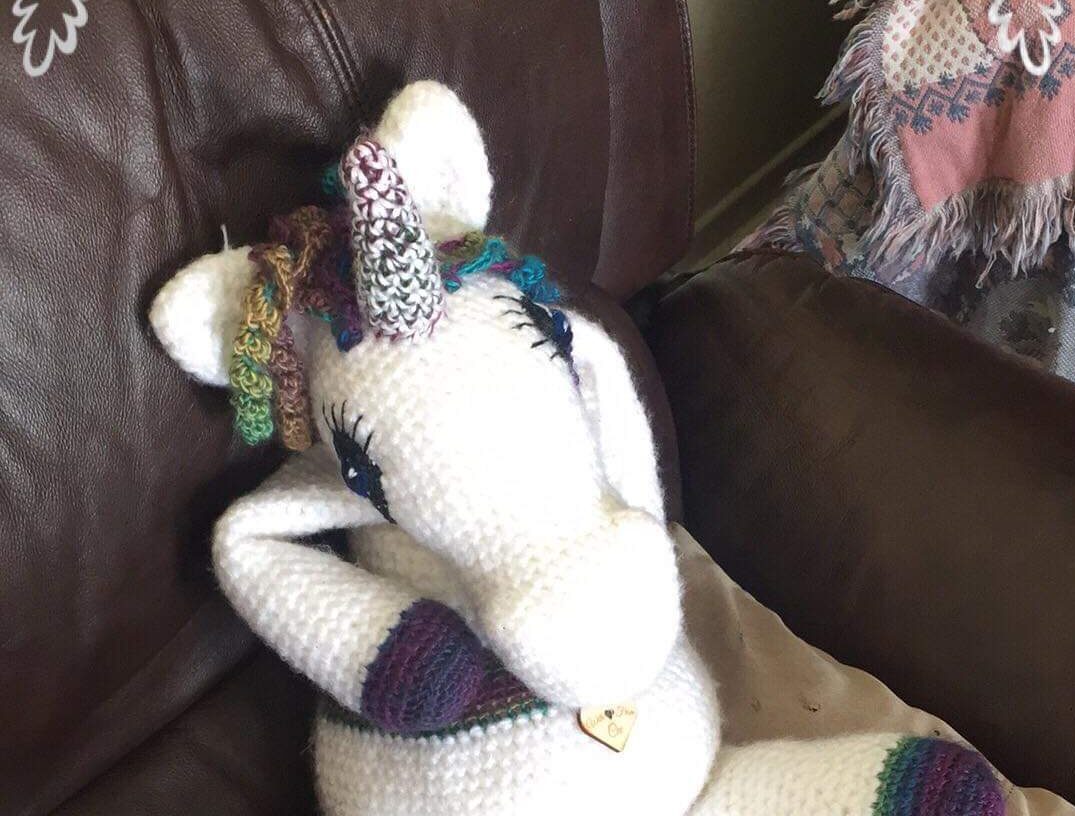Posts Tagged ‘Grief’
Calls to Care, Calls to Action: Bearing Witness to Global Catastrophic Loss of Life and Traumatic Events
By Jessica Milette, MSW/RSW
Human beings are wired for connection. Many of life’s most difficult experiences leave us feeling isolated, and connection can be a healing path. Currently, many of us are watching intense acts of genocide and death occurring internationally literally at our fingertips.
Why are our hearts tearing open at the witnessing of this pain? Why do we feel so helpless while we bear witness to pain and loss on massive levels that we may not feel entitled to experience because we are not directly impacted by these events?
In the words of a Jewish text, the Pirkei Avot “Do not be daunted by the enormity of the world’s grief. You are not obligated to complete the work, but neither are you free to abandon it.” And currently, there is so much grief in the world. Coming together in grief can be healing and a call for action to demand change in the face of oppression and genocide.
We bear witness to stories of mass loss of lives, stories of families in Gaza being forced from their land, loss of culture and traditions, and countless other ways systems of colonization and oppression can contribute to other non-death losses those who are directly affected currently and have historically faced. As we discussed in a previous article, we can also experience collective grief following natural disasters, accidents, international conflict, and acts of violence that have resulted in catastrophic loss of lives.
Loss also recognizes loss: hearing about international events that have resulted in the loss of lives, may have us thinking about our own losses in our lives. Depending on where we were born, the identities we hold, and how we move through our society can also impact our experiences of loss. We may be experiencing fear not knowing someone we love is alive who lives in an affected area. We may have experienced diaspora, and our communities in our home country are victims of violence. We can also feel grief deeply if we do not have a direct connection through our identities to those more directly impacted by the loss. Human beings are wired for connection and empathy – we hurt when we see hurt.
Some calls to care for when we experience collective grief:
– Being mindful of how much content you are consuming. It’s okay to step back or limit the types of information we choose to process. Perhaps reading articles from those who are directly impacted by these events feels more accessible than watching video coverage which can be graphic.
– Tend to your heart and body: the experience of grief can be demanding on our minds and bodies. Take time to rest, hydrate, and nourish yourself in healing ways. Caring for ourselves gives us more capacity to provide care to others we are in community with.
– Acknowledge your feelings. You may be feeling deep grief, despair, anger. It may feel easier to shut down these feelings, turn off our news feeds and burrow into our covers. But it is important that we give ourselves permission to feel and express our collective grief.
– Remember, POUR IN and DUMP OUT. Pour in support to those in your life who may be more directly impacted by these losses. Dump out your own grief to those who are not as directly impacted compared to your own positionality to these events.
– Grief AND joy can coexist. We can hold space to process our feelings of grief while also remaining open to experiences of lightness and joy.
– Share and express your feelings of grief with a supportive other. What types of support are most helpful to you when you have experienced grief?
There is power and healing in community. Collective action in moments of collective grief history have exposed injustice, and demanded action. We may also feel fatigued by the sheer volume of loss we are witnessing. When we feel fatigued, it can be easy to turn away and tell ourselves “this isn’t about me”. Turning away from these moments in history actually further silences those who are facing oppression, marginalization, and loss on a grand scale. Collective grief invites us an opportunity to gather collectively as a community to offer support, heal, and advocate.
Engage how you can. Everyone’s capacities will be different, and each of these things can help change our perspectives or ask for change:
– Learning and UnLearning about the topic
– Gathering in community through teach-ins, demonstrations, community vigils, or protests
– Create space for joy as we call for action. Could you host a movie night where you and supportive others write to local governmental representatives? Have a craft night to make signs for a local demonstration.
– Reflecting on our own experiences from a lens of critical self-reflexivity.
– Holding space for difficult conversations with loved ones
– Being critical as we read information – whose story is being centered, where is this source from
– How could I use the privilege(s) I have to amplify marginalized voices in this space?
Unlearning is uncomfortable. It asks us to sit and critically examine how our identities shape our view of the world. Taking stock of how your privileges or silence may have made you complicit in moments of oppression and marginalization. It may challenge your entire worldview. These things are uncomfortable. Discomfort is not a “bad” feeling – it is something that is uncomfortable to sit with. But sitting with our discomfort and increasing our tolerance to hold these uncomfortable feelings as we unlearn is part of this work. And it is so needed. We all have gifts of the head, heart, and hands we can lean on in times of collective grief, and in times we demand collective change.
Keeping Records
By Alyssa Warmland
I pulled the photos out of their envelope one at a time, turning over each one to carefully record the date, place, and people in the photo. Sometimes, I included comments. “Apple picking in Hamilton with Pop Pop, Fall, 2023. You loved the wagon ride!”. I slipped each picture into an empty pocket in my son’s photo album.
Next, I pulled out the baby book I’ve kept since before he was even earthside. I flipped to a page at the back to record an appointment, a new adventure with a forest homeschool group, and milestones.
When I tell other people my age about these rituals, they tend to share that they wish they were better about printing pictures and writing in their kids’ baby books. I’ve always enjoyed documentation, an avid journalkeeper as long as I’ve been able to write. I’ve considered this another extension of that interest. It wasn’t until earlier this week that it hit me- I keep these records so that if I die while my kid is young, he will have access to this information.
When I was 14, my mom was diagnosed with terminal cancer. I remember the day my dad picked me up from school and told me the results of the biopsy. I remember riding beside him in the passenger seat and thinking, “She’ll never meet my kids. She won’t be at my wedding. She won’t see me graduate.” All the milestones we would spend apart ran through my head. In the years since her death, I’ve consulted my baby book and read, over and over, the notes she wrote to me.
When my son was born and I became a mother, I read the notes in my book. When he started getting teeth, I turned to my (and my brother’s) books to find out when we got our teeth. I’ve looked up when we potty trained, what our sleep was like, about her breastfeeding experiences, when we started going to the dentist, and, most recently, upon learning that I was expecting another baby, what it was like when my mom brought my brother home. Not all, but some, of my questions I wish I could ask her about were answered in this record she lovingly kept.
As I write in my son’s books and caption the photos I’ve printed, I honour her, my child, and my own mother/child self. I hold space for my grief and for her memory. I continue a tradition of mothers keeping records to pick up when our babies need them.
Jessica’s Reflections as an Adult Grieving Child
By Jessica Milette, MSW, RSW
November is considered Bereavement Awareness Month, and this year November 16 commemorates Children’s Grief Awareness Day. 1 in 14 children in Canada will experience the death of a parent or sibling by age 18.
The first funeral I attended was at the age of 7 when my Nana, or paternal grandmother died. My family buried my maternal grandfather 7 years later after he experienced a stroke when I was 14 and my mother was still in treatment for cancer. 13 months later, I would be burying my mom at age 15 after dying of cancer. She was 49. We would be gathering again less than two months later to bury my godmother and aunt who died suddenly and unexpectedly. Every time I felt like I had found footing on the shores of my grief, another loss would crash over me like a wave, dragging me out to a sea of unknown.
Navigating puberty can be an exciting and challenging transition in our life that also can have us feeling grief from non-death losses as we figure out who we are becoming. Not only was I trying to make sense of hormones and changes during this time of life, but my mom – the person who I would have gone to for support was no longer a phone call or hug away. Parents or trusted adults are people children often turn to for support, but my circle of trusted adults was shrinking. My peers were focused on what to wear on civvies day (a day where we didn’t have to wear a uniform), while I was focused on just surviving.
I felt so alone in my grief, although my twin, younger brother, dad, and other relatives in my life were also grieving. Friends would try to show up for me, sometimes it didn’t land well. There are friends who had never been to a funeral that walked with me in the depths of my grief who still hold a special place in my heart and life. I felt like I was in a sea of students in the hall between class with a flashing neon sign that read “Human with all the dead people in their life”. At times I could tell how awkward both peers and adults in my life were when approaching me – what do you tell someone when you’ve never experienced a death? And the person who is grieving can’t even legally drive a car!
There was no right or wrong way for me to grieve, but I had to find my own way to grieve. Sometimes they were helpful, and other times the things I did I thought helped me with my grief were not so helpful.
I am fortunate that despite the not-so-careful caring people in my life that made me feel invalidated, I had many caring adults in my life who let me know that grief is natural, and let me share stories of my loved ones. Within the first year of our loss, each of my siblings, my father, and I attended a grief support group. Walking into my first group was both scary and exciting: other teens like me?! The peer volunteer who co-ran these groups was actually someone I knew personally, but had no idea that they had been touched by death too.
I felt deep sadness, guilt, and anger in that group. I also felt deep connection, joy, and even laughter. We got to talk about our sibling, parent, or other close person in our life we were grieving. Talking about grief didn’t make me feel more alone, or worse, it made me feel LESS alone. That we all grieve what we are connected to. That’s it’s okay to not be okay. That sharing our stories of our person and our pain can be healing when we have the right kind of listener in our corner. And that we never have to walk alone at any age or stage of our grief.
What Can Help with Early Traumatic Grief?
By Claire Irwin
When your child dies you are thrown into a nightmare. None of this is expected to be easy.
Even after several months, it still isn’t. There have been some things that have helped us during
our grief. Maybe they will help you, too.
1. Let someone organize a meal train. The community rallied, making sure we had meals
delivered to our home for weeks after our daughter died. I have zero idea what we would have
done without this. Right after this traumatic loss I couldn’t even think about eating, let alone
cooking and meal planning.
2. Grief counselling. Our counsellor comes every week since the second day. Some may not agree, but honestly, we have learned some great survival tools and have our feelings validated.
To be able to talk about it all in a safe environment is very helpful, and just talking about
everything helps.
3. Find something to keep you busy. Mind you, we haven’t found our way to any gym yet or back to work, but we find other ways to move our bodies. Gardening, cutting grass, walks,
landscaping, anything really to get our bodies moving has really helped us.
4. Try journaling. I wish I started this earlier. If you can find it in you to do it, I recommend it. For me personally, it helps get whatever is in my head out on paper. I document how I’m feeling. I also get my anger out on paper too. I’ve been learning that you can let it build up inside of you. This energy needs to get out. I find writing very helpful for me. I journal daily. Plus, it helps me keep my days in order because they tend to blend.
5. Let your support system hold you. This has been a huge help. I don’t know where I would be today if I didn’t have the people closest to us. Lean into them and let them help. Use them as sounding boards. Whatever it is you need, if they are willing and able to be there for you, let
them. It’s not easy asking for help or accepting it, but it’s helped us feel loved and seen. It’s also
helped us back on our feet a bit.
At the core of it all, just remembering to breathe is sometimes all you can do. Something our
grief counsellor has taught us right from the very beginning:
Inhale 4 seconds…Hold 7 seconds…Exhale 8 seconds. Repeat as needed.
Like I said, surviving this grief and trauma isn’t easy, and it doesn’t come with a handbook. We
are all just doing the best we can, and it’s sucks all at the same time. Our loss cannot be fixed, it
can only be carried, and these are some of the things helping us to carry it now.
Ghosts From The Past
By Josh Abel
I met Holly riding the bus in our community. She is very attractive with a winsome smile and piercing eyes that I would trade anything for. She was also the bus driver. At that time Holly went to school to become a nurse. After becoming a nurse, Holly didn’t drive the bus that much, but one of her fellow bus drivers mentioned to me that one of Holly’s patients had died and it had a negative impact on her. It brought back ghosts from my past as I also had a job in which people died which had a negative impact on me.
I used to help people deal with their addictions. One former client relapsed and overdosed leaving a one year old child behind. I couldn’t begin to describe how sorry I felt for that one year old. Then there’s the second guessing (guilt). Could I have done more and why didn’t I see this coming? Another former client on one Mother’s day killed two of his next door neighbours. Since that time, Mother’s day has never been the same for me. I felt similar emotions for the family of the two victims. My heart went out to them and although I never met them, somehow this was one of those occasions where saying sorry just isn’t enough. The police did catch my client who wasn’t “at risk” (he came from a nice home, wasn’t involved in gangs) of committing such a crime but it still got to me anyway.
As a caring person, those incidents affected me just as Holly’s affected her. You just can’t take the human part of you out of the equation. I did tell Holly I was sorry for the loss of her patient. Holly is also a caring person and I don’t want her to experience the same negative impact as my situation did with me. They can teach you every aspect of how to perform your job except one: how to deal with second guessing. The guilt will get to you if you let it, especially if you are a perfectionist at your job. Your work ethic teaches you to be the best at your job, but there are things you are going to encounter that you just can’t control. When I started my job I wanted to help people I wanted to make an impact on people’s lives, an idealist. In my case that’s what made the guilt even more of a challenge to overcome. Although I can’t control someone else’s behaviour, Mother’s Day will never be the same for me especially since my own Mother passed away last year.
Holly if you’re reading this you are going to have a lot of success in your job and you probably won’t give it a second thought. Please give the successes more attention than the failures because that’s what makes the job enjoyable (helping people).
Holly’s true reflection is beauty and she made the bus fun to ride.
Thoughts on International Overdose Awareness Day 2023
By Jessica Milette, MSW/RSW
August 31 is International Overdose Awareness Day, a day where we honour and remember those who have died by drug poisoning.
We lead multifaceted lives, and the deaths of those we love who have died by drug poisoning contain multitudes. The death of a loved one can bring intense grief, shock, anger, shame, or guilt. People who use drugs, and those who love them that they leave behind, face stigma in North America’s dominant, settler culture.
It is this stigma of drug poisoning deaths, the othering of another’s valid grief, that places a barrier to one of the greatest things we can offer to ourselves and each other: connection. Those who have died by drug poisoning are parents, children, siblings, aunts, and friends. Those who welcomed us with open arms for an embrace, those who worked alongside us, and those who have faced much suffering and marginalization.
Grief can be an isolating experience; having opportunities to heal in community and share the stories of those we love who have died are so important. It is never about HOW they died, but WHO they are. Saying their name out loud, listening to their favourite music, and sharing stories of joy can help. Sometimes we need to share our stories of frustration, guilt, or sorrow with others who have experienced the death of a loved one.
We don’t have to be impacted by the death of a loved one by drug poisoning to support others in our community who are in pain. Grief and the losses we face cannot be fixed. We can feel helpless in the face of seeing someone we care about in the depths of grief. One of the biggest things we can do as supporters is to not shy away from grief – those grieving can feel supported when others ask them about their person or use their name in conversations. Sometimes telling grievers to “call me if you need anything” can feel overwhelming. By offering specific, practical support like mowing their lawn or dropping off groceries gives grievers a choice. If they do not accept the support you offer, be open to listening to what support they do need as what you may have found helpful might not be the type of support they need. A helpful phrase I’ve used to communicate to people in my life when I need some grief support, or when I’ve offered support to those in my life grieving has been: “Would you like help (with a task or to brainstorm), would you like to be heard (where I will sit and listen without judgment and sit with you in your grief), or would you like a hug (sometimes we need a hug through a tough moment)?”
In addition to these personal losses, we also face these losses as a community. State of Emergencies declared by public health authorities due to the drug poisoning crisis are more common than they were before. The Canadian Healthcare system is still reeling from a pandemic and is unable to meet the current demands to address this health crisis. Drug poisoning deaths are highest for those in our community that face high levels of marginalization, oppression, and stigma despite human beings’ universal needs for safety, connection, community, and care..
People who use drugs, like all human beings living on Stolen Land on Turtle Island deserve access to care, community, connection, and safety in all areas of their wellbeing. Harm Reduction is an important but often underappreciated pillar in Canada’s healthcare system that offers safety, community, compassion, and care while keeping the dignity of the person who uses drugs at the heart of this work. Harm Reduction workers create community for those who may feel isolated or have been excluded from other communities they belong to due to their drug use. They provide spaces for people to learn new ways to be in relationship with drugs, how to be safe when using drugs, and getting connected to other supports for their whole health. Not all drug use is inherently problematic, and harm reduction support can look like many things: from helping those wishing to be abstinent from drug use to helping those who are still using drugs to use them in safer ways.
Just like we come in community to honour those who have died, through community we can continue to hold systems accountable and advocate for equity, justice, safety and health for all.
Shadowloss: loss in life
By Alyssa Warmland
Shadowloss is a term developed by Cole Imperi, a thanatologist and the founder of The American School of Thanatology. It describes the types of loss we feel in life, rather than the loss of life. Shadowlosses are things like divorce or the end of a long-term relationship, infertility, a medical diagnosis, losing a job, or the loss of some other relationship or thing. It’s a loss that impacts the life of an individual, as well as their social network in their life.
Sometimes, the loss of a being coexists with shadowloss. For example, when a loved one dies, families are often tasked with sorting through the person (or animal)’s belongings. When my dog died, I remember packing her bowls, her toys, her leash, and her collars away in a box I made space for in my crowded apartment because I couldn’t stand the loss of throwing them out. I remember holding her favourite toys and feeling deeply in grief. The “big loss” was my beloved dog, but the shadowloss was when I got rid of some of her belongings and how hard that piece was. It felt like a tug in the pit of my stomach when I turned towards the wall where her water dish used to sit, only to see an empty bit of wall.
Another example of shadowloss in my life was when I was fired from a job at a women’s shelter. I’d thought, all through my undergrad, that I would work in one. I worked hard to get my gender studies degree and to volunteer with feminist organizations that targeted violence against women. And, after applying four or five times, I finally got the job. I loved it, although the rest of the staff was far more conservative than I am and I sensed that I was not a great fit, in spite of my knowledge and my passion for the work. I was fired, just before the end of my probation, and refused an explanation as to exactly why. I was devastated. Not only was I losing a job, I felt as though I was losing a dream and a sense of self. Years, and a whole career, later, I still experience huge waves of grief related to that loss.
What we know about types of loss is that we experience grief related to them in very similar ways. Waves of sadness, anger, and the sense that something/someone is missing are a few things that can come up with “big loss” and with shadowloss. As with any type of grief, it’s not particularly useful to rank and compare types of loss or experiences of grief. But having language to describe the experience of grief associated with the loss of a thing or part of someone/their life can be useful. This allows us to acknowledge those losses as ones where we leave ourselves some space to grieve. It can also be another opportunity to connect in this life where there are shared human experiences like the complex plurality that is grief.
The Meaning of Tisha B’Av
By Richard Quodomine
Starting on sundown, July 26th, some Jews will begin to fast. Unlike the more well-known Yom Kippur, which is for atonement, Tisha B’Av is a specific holiday for mourning and grief. Its exact date varies with the ancient Jewish lunar Calendar, but is sometime in July or early August. All Jewish commemorations begin in the evening due to this lunar calendar.
Observant Jews will abstain from sexual relations, all forms of frivolity, wearing of leather, and work on this day. Just before the evening that begins the holiday, a “separation meal,” called seudah hamafseket,is eaten.It consists of bread and a hard-boiled egg dipped in ashes, accompanied by water. Talk about a meal to remind one of sadness. Once the evening of Tisha B’Av commences, one fasts for a full 24 hours. Please note that life and health are more important than fasting in Jewish tradition. If a doctor says a person should not fast, such as a woman who is pregnant, then fasting is forbidden.
Those of us of the Jewish faith also ascribe several sad events as having happened on the day of Tisha B’Av. For example, it is traditionally believed that both the First and Second Temples in Jerusalem were destroyed on Tisha B’Av. In more recent history, the last Jews of Spain whom did not convert to Catholicism were said to have left Spain forever on Tisha B’Av. Spanish Judaism had been a critical component of the Islamic culture there and was part of its unique pluralism and beauty. Some of those events may not have happened “on that day” exactly. The point of the holiday is not to take dates literally, but rather to remind ourselves that grief is a life cycle event, and we all grieve at some time.
Further, there is grief over loss of life but also grief for losing ways of living, of culture, of beauty or perhaps our environment and our friends who are not well treated by society. Tisha B’Av is a Jewish holiday, but it is also a holiday that is universal. No, we shouldn’t all fast or refuse to wear leather. But we should recognize that mourning is important. Feeling loss and grief is a part of whom we are. In facing that loss and accepting that grief – along with emotions such as anger, sadness or resentment – we are able to process them. We’re able to find a part of ourselves. For example, when dealing with a person who has passed, the grief we bear is knowing that we must carry that which we have lost because the person who carried them with us can no longer do it. We must grieve, and then bring about again the joy that that person created. The prayer for the holiday concludes with the verse “Restore us to You, O Lord, that we may be restored! Renew our days as of old.” In accepting grief, we can be restored to joy.
Ripples of Grief: Supporting Ourselves, Others, and our Communities After a Death
By Jessica Milette, MSW, RSW
When death knocks on the door of a community, each of us are impacted. Sometimes a death will touch many lives across a community, whether people knew the deceased personally or not. We may grieve the death of a family member, friend, or acquaintance, a well-known community member, or someone we are linked to by age, location, circumstances, etc. Community grief can feel overwhelming – we must tend to our own grief, but others in our life are grieving and hurting too. Each person in a community will grieve differently depending on their relationship to the person who has died, their own prior experiences of loss, and the unique coping strategies they rely on in grief.
Developed by psychologist Susan Silk and Barry Goldman following Susan’s experience with a health crisis and her diagnosis with breast cancer, Ring Theory helps us learn how to support others and ourselves when a community death occurs.
Like a ripple on water when we drop a pebble into it, imagine a series of concentric circles. Those directly impacted by the crisis or death are in the innermost ring, with each outer ring consisting of those further removed from the crisis or death. Generally the immediate family, or those who lived with the deceased,are in the innermost ring, with close friends and other family in the next ring, co-workers and acquaintances in the next ring, and those in our greater community in the outer rings.
When someone experiences a death, those in outer rings pour comfort in, while those in inner rings are allowed to “dump” their thoughts or feelings out. When someone in an inner ring is dumping out their feelings, those in outer rings can show up with acceptance and care, listening and validating the person’s experiences.
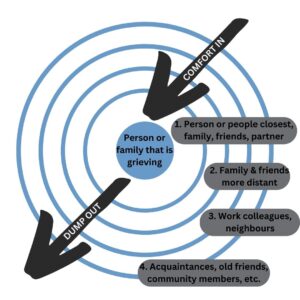
Pouring comfort in can also be the offer of specific, practical help. This approach seeks the griever’s consent to accept specific support and comfort, it lets the griever say yes or no to the offer, and can confirm what kinds of support are most helpful to them. It’s important to offer support on the griever’s terms.
When a community faces loss, many who are impacted want to share their feelings about the loss. Susan recalled during her cancer treatment how some folks she did not have very close relationships with in her community would show up unannounced, forcing her to accept support, or people would talk about their own feelings about her diagnosis. Dumping feelings onto someone in an inner circle is not helpful. It can leave those experiencing the loss most personally as if their loss is unacknowledged. When we know which ring we sit in after a death, we can connect to our own outer rings anytime we need to tend to our feelings of grief. If we find ourselves thinking about reaching out for support from someone who is in an inner circle compared to our relationship to the deceased, we should take a step back. Is there someone else that may be located in the same ring as us, or someone in a ring outside of us that we can reach out to instead? Sometimes actually drawing out the rings of folks in our own life impacted by a death can clarify where we need to support others, and who we can connect with for our own support.
Whether supporting others, or seeking support ourselves, a helpful phrase may be “Would you like to be heard, helped, or hugged?” Being heard means receiving supportive listening and validation. Being helped may mean brainstorming and collaborative problem-solving, or providing specific practical help with tasks. Sometimes there are no words or help we can offer, but, if welcome, our steady presence and a comforting hug can communicate our support.
Each person in a community will be impacted differently by a community death. It’s important to remember this theory about who we need to pour comfort into, and who we ourselves can dump out to as we navigate a community loss.
Articles Reviewed for Blog Post:
https://karenwulfson.com/wp-content/uploads/2013/04/How-not-to-say-the-wrong-thing1.pdf
https://www.latimes.com/opinion/op-ed/la-xpm-2013-apr-07-la-oe-0407-silk-ring-theory-20130407-story.html (actual article in LA Times first written by Susan Silk – first link is PDF version of same article)
https://www.psychologytoday.com/ca/blog/promoting-hope-preventing-suicide/201705/ring-theory-helps-us-bring-comfort-in
The First Fathers’ Day Without Dad
By Richard D. Quodomine
When you lose a person in the generation before you, you begin to think about what they meant to you. When you lose a parent, you think about all they meant, and you hoped you either lived up to the best of yourself, or in some cases where the parenting was not as instructive or kind, you hope you’ve raised yourself beyond difficult circumstances. If you’re fortunate, Dad pushes every endeavor and delights in your successes and constructively scolds you when you fail without ever making you feel embarrassed or willfully stupid – unless of course, you were actually willfully stupid.
Did we have our differences? Absolutely. My father was more conservative than I am politically, though he rejected hateful politics and would not vote for it. We come from a mixed religious family, and my father was Christian, I am Jewish. We had philosophical differences and we approached life differently. But we also valued accomplishment, kindness for its own sake, and service in the public good. He is part of the reason I have chosen a career in civil service. I believe government can and should serve at the behest of its citizenry, and while he mistrusted government intrinsically, he had respect for my approach in working for it.
As part of my research in the public interest, I went to India for a conference. While en route, somewhere between Zurich and Delhi, my Dad suddenly passed from a cardiac arrest. I couldn’t return home for several days, so I soldiered on without telling anyone at the conference. I figured the way to honor his memory was to do my very best. He was gone – and weeping in my hotel room wasn’t what he would have wanted.
Dad had a heart condition, but he had had corrective surgery and was otherwise in outstanding physical shape for his age. He was my Mom’s primary caregiver. This was especially tragic because she has dementia. Sometimes, I get angry that Dad is gone because the burden is much greater on myself and my family. Sometimes, I am so grateful that he gave me the strength to help care for Mom. Most of the time, even months removed, I’m just missing talking to my Dad.
The first father’s day without Dad is the hardest, or so “they say.” I think that is true, but it’s harder not because I am sad, but because there’s nothing that can replace all that he was. It’s trite to say “he lives in me.” I think it’s better to say “I take what he has given me, and I will grow and make this life my own.” I don’t think anyone should strive to be “just like” their parent. They should strive to be their own authentic selves, using the best of their parent as the cornerstone, not the ceiling. In Judaism, we say “May their memory be for a blessing” as a condolence. Dad’s memory is, for certain, a blessing.
Mourning a Man I Never Knew
By David Newland
The following blog post is a reworking of a post originally written in 2005 under the same name on his website.
This spring, I turned fifty-four. I have now outlived the father I never knew: my biological father. It’s been almost twenty-three years since we spoke; eighteen years since I learned of his death. I’m still dealing with the strange grief of his loss.
As an adoptee, I always had questions about my origins that my loving, caring adoptive parents couldn’t answer. In my twenties, I applied to Child Services for more information, and after eight years of waiting on my part, they did a search in 2000. After some effort, they couldn’t find my birth-mother, but quickly produced contact info for my biological father. They offered to put us in touch.
After jumping through a few official hoops, we emailed back and forth a bit, and finally, we spoke on the phone, maybe three times in all.
I can’t even describe what that was like – intense, starkly honest, humorous and deep. Here was a man who had made most of the same mistakes I had, only far worse. Depression, drugs, divorce. Family problems. Anger management. Women. He hid nothing, as far as I could tell, although his stories sometimes conflicted.
I didn’t hold anything back either. I insisted that he honour my experience as an adoptee. It wasn’t easy for me, handling the big hole in my life. He had a hard time understanding that. He said his own kids had it a lot worse than me. He was right, but that wasn’t for him to say. I heard it from them.
It was good to connect, but I knew he wasn’t good for me. I chose not to pursue further connection. I knew he was out there. He knew where I was.
There was no contact for a few years. And then one day, in January of 2005, I found out he was dead. I was online at work, looking for some information on the original (Polish) spelling of his last name, and wham! the first thing that came up was a memorial page. He had died, nearly a year before, in March 2004, aged 54.
I never knew him in life. I still don’t know him in death. But I’ve been grieving him for a long time, in my way.
In 2016, still reckoning with the hole he left, I went to Red Deer to find his grave. I narrated that journey in a CBC radio documentary, The heartache and healing of finding my birth father. I never found a grave: only my own shadow over a four-by-four stake in the ground. I did enjoy a delicious steak sandwich at a local hotel restaurant he was fond of.
I’ve been back to Red Deer twice since then. The last time I went, even the stake was gone. And so was the steak sandwich, restaurant, hotel and all.
The picture on the memorial page linked above is the only likeness I ever saw of my birth-father. I always thought I saw my face in his. Now, having reached his age, I see his face in mine.
Saved by a Unicorn: How I Found the Positive in Grief, One Stitch at a Time
By Cee Fisher
I’ve tried many ways of handling grief. I love the challenge of redirecting the negative energy derived from grief, turning it into something positive and useful. Of course, things don’t always go as planned. Still, it feels good to know I have the power to switch things up and try to create more of a sustainable balance in my life. It gives me a sense of control and helps me to feel more hopeful.
One of my most devastating experiences with grief was when I found out my soulmate, Reuben, died. He was the rarest, most caring soul I’d ever met. People respected him. They listened to him. Reuben and I were engaged for a couple of years, and although our breakup was complicated there are a few facts you should know. When we last spoke, we were living in separate countries. He was living on kidney dialysis. I was raising our son alone. They had never met. We were making plans of reuniting. Somewhere along the line, our phone numbers changed and caused us to lose touch. I searched for him for ten years. When he died, a letter that he had written to me was discovered in his belongings. In the letter, he said he needed to speak to me as soon as possible. We never got to have that conversation, and he never got to meet his son.
Googling his name had become very routine, but this time was different. A link appeared. My jaw dropped excitedly until I followed the link and saw the word “late” typed next to his name. That was it for me. That was when my world came crashing down. It felt as if I was violently kicked off cloud 9 and slammed in the gut with a sledgehammer. I opened my mouth and felt my soul wailing, but it was as if I were crying in reverse. I could not breathe. I truly believe that was the day I gained full understanding of what a meltdown feels like.
I hid in my room for about a week, curled up in fetus position, aimlessly crying out Reuben’s name. I felt totally lost and defeated, and knew I needed something else to focus on. Life had taught me that. I needed to engage in something therapeutic, and washing dishes was definitely out of the question. I decided to buy a crochet hook. I crocheted every day, and soon began receiving requests for paid orders. I began selling at outdoor events, surrounded by nature. In no time, I was designing and crocheting custom-made items, including a unicorn my neighbor ordered for her daughter.
Looking back, I had no idea how to even continue to live. A simple attempt at something therapeutic sent the negative bereavement energy into a positive direction. It made me realize my strengths, at a time when I felt I had none at all. It provided a space where I am now better able to manage grief when it hits.


